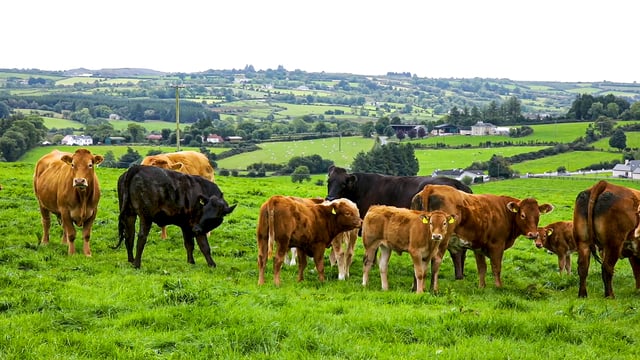Individual Farmers of Ireland threatens to protest over climate bill
The Individual Farmers of Ireland (IFI) group, is threatening to organise major protests if the government tries to "push through" legislation that could reduce agricultural production by up to 51% in the new climate bill.
IFI is the group that organised the tractor demonstration protests in Dublin in 2019 and January 2020, taking to the streets of the capital over beef prices at the time.
The group has said that the Climate Action and Low Carbon Development (Amendment) Bill 2021, being discussed in the Dáil today (Wednesday, April 20), would "destroy rural Ireland, costing over 100,000 jobs, devastating every local village and town economy".
In a statement, the group said: "We are world leaders in green food production; our grass-based beef, dairy and sheep production is the envy of the world. We are known worldwide for our green image which is accurate and our green-led government wants to destroy this achievement.
"The current price of lamb proves how quick food can become too expensive for most people. With green-led governments in Europe all trying to cut production of food to reduce emissions, they are forgetting what food production is all about," the statement continues.
IFI has said that food production is to "keep people alive; farmers feed the world. If we in Europe cut food production, either one of two things will happen: a famine will hit the poorest regions, or areas like Brazil will increase production to fill the market, clearing more rainforest in the process".
IFI wants the bill, which will be discussed in the Dáil today, to be stopped and is calling on Fianna Fáil and Fine Gael TDs to reject the proposal.
"Rural TDs who vote for this will have campaigns launched against them in the next election," said IFI spokesperson, James Geoghegan.
"If this vote goes through, we will launch a major tractor protest to Dublin. We will retaliate against this city-based government by closing down the city," he added.
"Farmland sequesters carbon. If we in Ireland, increase our agricultural output, we will actually help reduce worldwide emissions due to our high grass-based livestock systems," he concluded.





